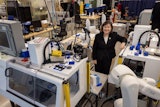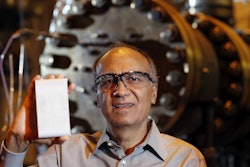Many of us are already familiar with the Internet of Things (IoT) concept — it’s the idea that just about any “thing” from man to machine can be connected, networked and provide intelligence. Specifically within the Industrial Internet of Things (IIoT), industrial objects are being connected and communicating, enabling automated real-time business insights, efficiencies and innovation.
This integrated technology infrastructure will enable the factory of the future to be more efficient, more adaptive to changing inputs, and ultimately more productive. It will power the smart grid to deliver the sustainable energy sources of tomorrow. It will make our home, communities and cities “smarter.” We are at an inflection point in technology, which creates great possibility and risk. Successful companies must navigate and adapt to this environment.
Companies also need to be aware that the growing connectedness of devices demands more sophisticated tools to ensure not only the quality of the product but also the quality of information that is being transferred. Sophisticated design tools are required to develop complex, engineering systems that can be embedded in the IIoT.
READ ALSO: 3 Ways Real-Time Tracking Powers Digital Factories
As an industry visionary, Airbus collaborated with National Instruments (NI) to begin developing smart tools for the first aerospace factory of the future. The fact is that today’s aerospace factory floor is nothing like the hectic, noisy production facility of the past. The latest techniques, designs and equipment make modern manufacturing efficient, organized and structured, but what about tomorrow?
The manufacturing and assembly of an aircraft involves tens of thousands of steps that must be followed by operators, and a single mistake in the process could cost hundreds of thousands of dollars to fix, making the margin for error very small. Knowing this, Airbus decided to invest in the future of its aircraft factory with a research and technology project aimed to push emerging technologies in order to improve the competitiveness of Airbus manufacturing processes where manual operations are still predominant today.
By adding intelligence to its tools and shop floor systems, Airbus’ production process is becoming more efficient, ultimately bringing planes and aerospace equipment to market faster. These “smart tools” have intelligence from something NI has coined as Big Analog Data, which includes data from light, radio frequency signals, vibrations and temperatures, and they’re enabling a smarter, operator-centric production that allows operators and machines to collaborate in the same physical environment. The smart devices are designed to communicate with a main infrastructure or locally with operators and other tools but only when it is required to provide situational awareness and make real-time decisions based on local and distributed intelligence in the network.
In the case of Airbus’ factory, the smart tools are helping to simplify the production process and improve efficiency by removing physical data logs and manuals. Operators need to focus on their operational tasks, during which they need to keep their hands free for using the appropriate tools. The smart devices understand the actions that the operator must perform next and automatically adjust the tools to the proper settings, which simplifies the task for the operator. Once the action is completed, the tools can also monitor and log the results of the action, which improves the efficiency of the production process.
Airbus is currently launching the development of three smart tool families that perform different manufacturing processes: drilling, measuring, and quality data logging and tightening. Using the NI System on Module, Airbus is able to accelerate the development process of the smart tools from design to prototyping to deployment. Because NI provides powerful, off the shelf solutions that can be tailored to various needs, now and in the future, Airbus realized significant productivity gains using NI's platform-based approach for embedded design in their aerospace factory of the future. They were able to quickly prototype their innovative ideas for operator integration, and they are bringing a solution to market considerably faster than if they had taken the custom design route.
Ultimately, the Industrial Internet of Things is enabling the first factory of the future, which is critical to competitiveness in the manufacturing industry. The rapid development of smart tools is essential for the incremental approach of new technology, from initial proof of concept development to real object dissemination. By investing in connected, intelligent tools that ensure the quality of the product and the information being transferred, companies can significantly accelerate their development process and bring visions into reality.
Andy Chang, Senior Manager of Academic Research at National Instruments.























